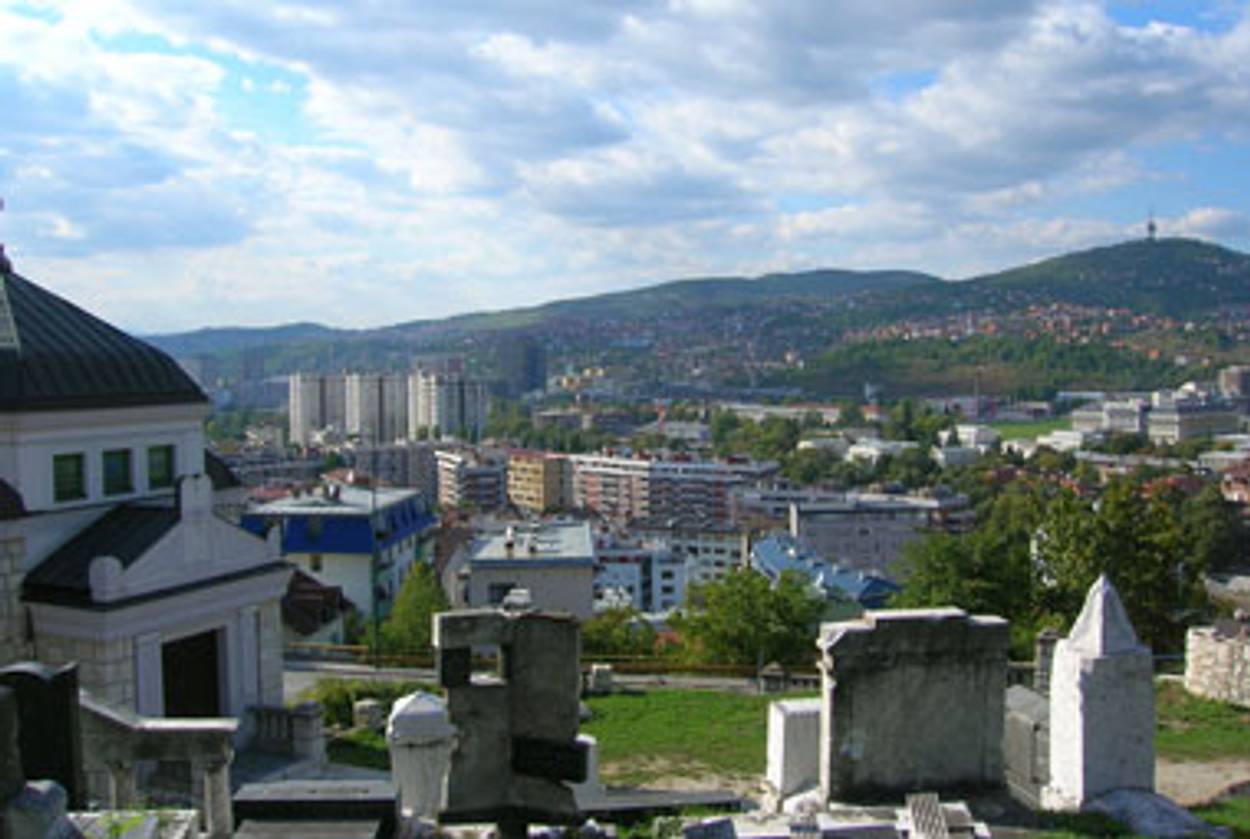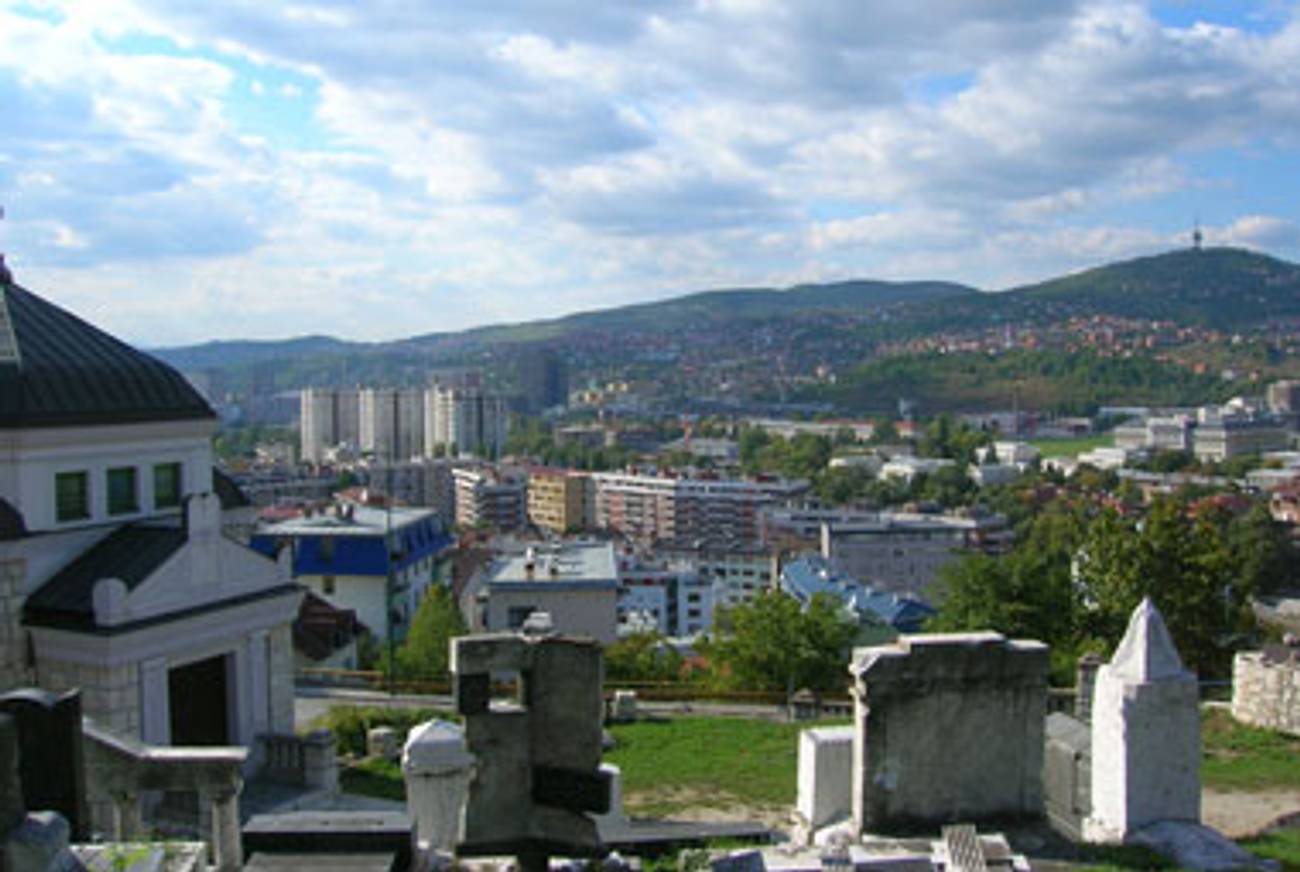Far Flung
Charles London traveled the world and found a brand of Judaism he could embrace




The title of Far From Zion: In Search of a Global Jewish Community, the well-meaning but problematic new book by Charles London, has a double edge. On one level, London, a young American Jew who lives in New York, has written an entertaining travelogue about his quest for far-flung and unlikely Jewish communities. From Burma to Cuba to Iran, London shows us Jews who are distant, geographically and culturally, both from mainstream American Jewry and from Israel, the double Zions of the modern Jewish world. At the same time, London’s title conveys his own desire to find a Jewish identity that is far from Zionism and the tangled questions of loyalty and responsibility that the Jewish state evokes. In the marginal Jewish communities he visits, London hopes to find a positive vision of Diaspora life, to counteract his predominantly negative feelings about Israel.
London, an activist who has done noble work for organizations like Refugees International and War Kids Relief, is a Jewish idealist of a familiar stripe—one whose commitment to universalism leads him to shun any Jewish particularism. In part, the shunning was done for him: he writes that he was raised with no Jewish education, and he repeatedly bemoans his inability to follow the Jewish prayer service or understand Hebrew. It is hardly surprising, then, that London “became just like so many others of my generation in America—to use a word so feared by so much of the Jewish establishment: assimilated.”
If he felt any attraction to Jewishness, he writes, it was as a source of “Jewish values—service, study, faith,” which complement his political activism. But like many younger Jews on the left, he “rarely associated” those kinds of values “with Israel or with those Jews who argued so vehemently in its defense.” Zionism, to him, meant fanatical settlers in the West Bank and the infliction of violence on Palestinians, and he resented being identified with such things. As he writes near the end of the book, “I was saddened to think that, aside from being the name of the Jewish state, Israel was the name of all the Jewish people. Why had they chosen this name for their state? Thanks to that choice, we were all deeply tied to this country, no matter how we felt about its policies.”
London prefaces this complaint with a statement of appreciation for Israel’s liberal accomplishments—as a gay man, he especially admires the way “homosexuals could live openly and freely in Israel,” unlike most of countries he visits in this book. But his revulsion at being identified with the Jewish state is about more than its policies. Fundamentally, it is about the way that being Jewish forces one to confront the limits of autonomy. For Americans, self-invention is a cherished right; why else do people from around the world immigrate here, if not to sever themselves and their children from old nationalities, old disabilities, old hatreds? Yet Jews, for all that they have thrived in America, still seem to be disqualified from the total autonomy that is the American Dream. We are still defined, in elusive but unmistakable ways, by history and identity; and the most obvious emblem of that history is Israel, the Jewish state whose moral claim all Jews feel, even if they reject it.
In this more-than-semantic sense, Israel, as London says, is the name of the Jewish people. Unless, of course, Jews can make a different name for themselves in the Diaspora, by rooting themselves in the local contexts and cultures where history has carried them. That is why London’s first positive experience with Jewishness, as he writes, came when he was working with the war-tormented children of Bosnia, and encountered the Bosnian Jewish community. “They were proud to be Bosnian,” he writes. “I found very few Zionists among them. Rather, I saw in them a community that had disavowed ethnic nationalism and had found purpose in caring for its neighbors. I liked the idea of a humanitarian Judaism rather than a nationalistic one.”
The Bosnian Jews appealed to London, he makes clear, for two specific reasons. During the siege of Sarajevo in the Yugoslav war, the Jewish community “had organized to get women, children, and the elderly out of the city.” And as a result, during a period of ethnic hatred, they stood outside the fray: “I remembered the respect with which Muslim and Christian citizens of Sarajevo spoke about their Jewish neighbors.” In other words—though they are not the words London himself would use—he was inspired in Bosnia because, unlike the Jews of America or Israel, these Jews were so ostentatiously unthreatening that they won the full approval of the Gentiles. Or, as he puts it, “the Jews gave back to the culture in which they lived,” and “create[d] something meaningful in spite of all the pressures to leave.”
This is not, of course, to belittle the remarkable achievements of the Bosnian Jews, which London describes in a chapter titled “Siege and Survival.” It is wonderful that during the war La Benevolencija, the Jewish communal organization, sponsored an interfaith kindergarten and ran a pharmacy that filled 1.5 million prescriptions in besieged Sarajevo. It is part of the tradition of philanthropy on which Jews pride themselves, and which is notable in all of the places London visits. In New Orleans after Hurricane Katrina, Jews worked to rebuild the city: “The United Jewish Communities and college Hillel organizations sent groups down to gut homes and construct community centers. Hundreds more volunteers came on their own and just started working.” Even the impoverished Jewish community of Uganda—the Abayudaya, descended from a tribal chief who improbably chose to convert to Judaism in the early 20th century—runs a fair-trade coffee-growing cooperative that includes Christian and Muslim farmers.
But humanitarianism is hardly a monopoly of these small and remote Jewish communities. What draws London to them is, rather, the combination of selflessness with marginality. When the Jews are a tiny minority—as they are, to take the most extreme example, in Burma, where barely anyone attends the Yom Kippur service that London witnesses—they must devote all their energies to survival, and ecumenicism itself becomes a survival strategy. But the few hundred Jews of Cuba, or the few thousand Jews of Tehran, can never be a model for the five million Jews of America and the five million Jews of Israel. Those are the places where the Jewish future is determined, and where questions of power and politics arise, with all their troubling ramifications.
To believe otherwise is to embrace the kind of naïveté that renounces history and politics. The future of the Jews, London declares in the book’s last paragraph, “lies not in retreating behind borders, not in the promise of any nation-state or military arsenal, or even negotiated treaties, but in the promise of a global community of neighbors, one that many small pockets of Jewry are struggling to create.” A global community of neighbors would be paradise on earth—it would be the fulfillment of Isaiah’s prophecy about swords and ploughshares. But until it comes, politics and power will remain realities, and it is an odd form of narcissism to believe that the Jews must be the first people to renounce them—as though powerlessness, in Jewish history, has usually been conducive to safety and virtue.
In fact, if London looked more closely at the history of the “small pockets of Jewry” he idealizes, he would see that they are small because they are all that remains of what used to be large pockets. The Holocaust decimated the Jews of Sarajevo; Castroism decimated the Jews of Cuba; the Islamic Revolution decimated the Jews of Tehran. It may be that the virtues of selflessness and marginality can only be bought at the price of being powerless and marginalized.
London’s visit to Tehran is the low point of Far From Zion, as he seizes every opportunity to show that, Israeli propaganda notwithstanding, the Islamic Republic is actually well-disposed toward Jews. “You know, this anti-Semitism, it is a European idea, not a Persian idea,” says Ciamak Moresadegh, the president of the Jewish community—that is, an official who must work with the regime. Miraculously, no one to whom London was introduced—in his official visit, as part of an interfaith peace delegation—was a Holocaust denier or a Jew hater. “Perhaps I had been conditioned to believe” in anti-Semitism that didn’t really exist, he wonders?
London’s drop-in tourism clearly didn’t involve much background research into the places he was visiting. But it wouldn’t have taken a lot of work to find out about the case of the 13 Iranian Jews sent to prison in 1999 as spies for the Zionist entity, after a closed trial featuring coerced confessions. That trial took place in Shiraz, a city London also visited. While he was there, he asked the head of the local Jewish community what would happen if Israel or the United States attacked Iran—how would Iranian Jews respond? “They would fight for their country,” the man replied—and of course, what else would he say? He knows about the 13 spies, even if London doesn’t. The grotesquerie of this encounter, the culpable ignorance of the American abroad, is all too familiar. As Far From Zion shows, there is a point at which innocence ceases to be a virtue.
Adam Kirsch is a contributing editor to Tablet Magazine and the author of Benjamin Disraeli, a biography in the Nextbook Press Jewish Encounters book series.
Adam Kirsch is a poet and literary critic, whose books include The People and the Books: 18 Classics of Jewish Literature.
Adam Kirsch is a poet and literary critic, whose books include The People and the Books: 18 Classics of Jewish Literature.